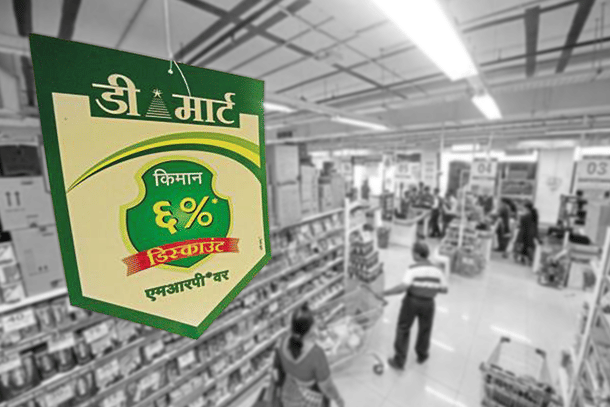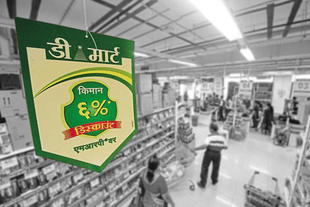Business
D Mart’s Valuations Are In Stratosphere And Surreal: Caveat Investor!
R Jagannathan
Feb 17, 2020, 11:03 AM | Updated 11:29 AM IST
Save & read from anywhere!
Bookmark stories for easy access on any device or the Swarajya app.


The rise of Radhakishan Damani, founder-promoter of India’s biggest listed retail chain D Mart (Avenue Supermarts), to India’s second-richest man after Mukesh Ambani is surreal. At a market valuation of Rs 155,546 crore, D Mart is three times the value of other listed retail chains (Trent, Aditya Birla Fashions and Future Retail) put together.
According to Forbes, Damani’s wealth is now $17.6 billion to Ambani’s $57.5 billion. (Check out real-time wealth numbers here)
Without in any way rubbishing the phenomenal achievements of Damani with D Mart and his uniquely profitable business model, it is difficult to ignore the reality that these valuations are way out of sync with reality.
At Rs 2,373 a share (mid-morning, 17 February), Avenue Supermarts (the listed name of retail brand D Mart) is valued at 123 times its earnings per share. This was the kind of valuation that companies like Infosys achieved during the surreal dotcom boom of 1999-2001. It cannot sustain.
The book value of the share is Rs 86, and the current price is 27 times the nominal book value of D Mart. Contrast this with a share price of just over 10 times book value for Tata Consultancy Services (TCS), which has a price-earnings multiple of a more realistic 25, one fifth that of D Mart.
The main reason for this super-high valuation of D Mart (or Avenue Supermarts Ltd) is scarcity and uniqueness. As the only really highly profitable listed retail chain, D Mart is the only game in town for a whole host of big institutional investors.
This implies that if more shares are on offer from rival chains and through new listings, D Mart will probably see a downgrade.
Over the next year or two, one can expect the biggest daddy of them all – Reliance Retail – to list on the bourses. According to one internal valuation, Reliance Retail’s market value may be $34 billion. A 25 per cent initial public offering will expand supplies of profitable retail shares by a massive $8-9 billion in terms of value. This will be more than enough to satiate the investment appetites of both institutional and retail investors in the short to medium term.
One cannot also predict what will happen if some of the big e-commerce retailers likes Flipkart or Paytm Mall consider listing once they achieve break-even in India. This may be some years away, but sooner than later, India will surely see a big e-tailer seeking to list either internationally and in India. This will against expand supplies of retailer shares. It does not matter where a e-tailer lists, for what matters is availability of adequate supply to international investors.
D Mart is a great business and a huge achievement for Radhakishan Damani. But a good business is not the same as a good investment for investors seeking to buy a piece of the action at current quoted prices.
Caveat investor!
Jagannathan is former Editorial Director, Swarajya. He tweets at @TheJaggi.





